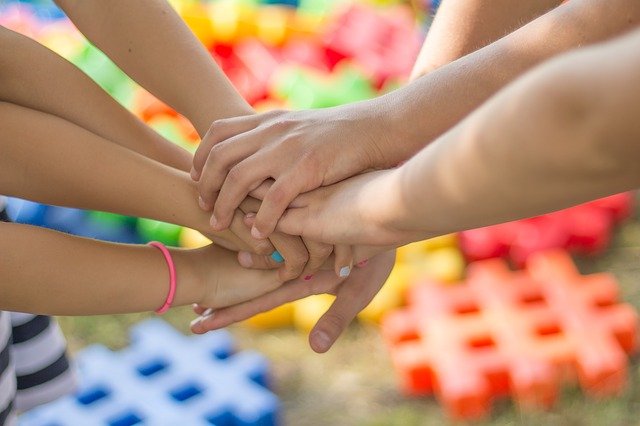For the first time since 2019, Chicago will allow baseball fans Participate in Chicago Cubs and White Sox games. Both baseball teams have been working on plans for weeks to allow ticket holders to enter their ballpark as both Wrigley Field and Guaranteed Rate Field had a shortened Major League Baseball season with no fans in the stands last year because of concerns about the spread of made COVID-19.
The sights, sounds, and smells of baseball – like Polish sausages charred on an onion-covered flattop grill – are popular with fans. Grocers selling peanuts, Cracker Jack, and more are integral parts of that feeling. While the city allows the Sox and Cubs to greet approximately 8,000 fans at each stadium (maximum capacity of 20 percent), Mayor Lori Lightfoot and the teams have yet to give a hint that beer and hot dog vendors will be returning. Vendors weren’t included in the announcement because the only food-related nugget in Monday’s announcement was that concession booths accept credit cards rather than cash.
For seasoned vendors, this time of year is forever as the stadium’s food service companies send out emails to see who would like to work this season. Beginners may struggle to find work unless they know someone inside for a reference. Lloyd Rutzky has been a beer seller in the stadiums on the south and north sides since 1965. He’s never used a handheld credit card holder. In recent years, pure cash providers haven’t made as much money as those who accept plastic, but Rutzky is a traditionalist. He’s opposed to new rules introduced last year for the shortened pandemic season, including shortened seven-inning games during doubleheaders or extended playoffs where 16 teams played the postseason.
“Providers are like hits, runs and errors. Providers are part of the game, ”says Rutzky. „Some interfere and block the view, but if people had to get up in the middle of an inning and go to the stands it would certainly ruin many people’s enjoyment.”
:no_upscale()/cdn.vox-cdn.com/uploads/chorus_asset/file/22357277/483235698.jpg)
Rutzky, who celebrated his 73rd birthday on Monday, describes himself as „the seller who sold the most beer in the history of baseball”. He was ready to start work in February 2020, before Americans understood the risks of COVID-19 and before events – including baseball season – were postponed or canceled. He was planning his 56th and final season for 2020. The pandemic took away his swan song.
„I’m probably the most famous vendor in Chicago,” he says. Rutzky has written two books about his adventures (The amazing salespeople at Wrigley Field and The amazing sellers at White Sox Park): „They’re available at full price on Amazon,” he adds with a laugh.
Last year, Rutzky told the Athletic about his struggles registering unemployment as COVID-19 regulations kept him away from baseball. Few have made the welfare of grocery sellers a priority during the pandemic. The communication wasn’t great. Staff read about developments online instead of being informed by MLB or the stadium concession companies (Levy at Wrigley and Delaware North at a guaranteed price).
There’s still a glimmer of hope that Rutzky could return for a game or two this year, but he suspects the normal baseball experience won’t return until 2022. The teams still have to inform the providers about the plan for the 2021 season, says Rutzky. Usually the Cubs and Sox send an email to the vendors asking them to sign up for the upcoming season. Rutzky is currently reading that fans can grab hot dogs and a beer at food stands. It doesn’t make sense to employ the 150 or so vendors who regularly walk around the stadium.
Providers were not allowed However, during spring training in Florida and Arizona, the stadiums were creative and fed the crowd. Some allow Food truck in the stadium on the field hall. eat must be consumed at a „stationary location, such as B. your seat and not while actively walking ”. Ushers are again wearing masks and signs reminding fans of social distancing rules.
:no_upscale()/cdn.vox-cdn.com/uploads/chorus_asset/file/22357535/1231464158.jpg)
While he says he doesn’t need spring workouts to test his physical fitness, Rutzky says providers are going through a pre-season orientation to go through new guidelines. The pandemic makes Rutzky sure that providers and teams will have a lot to discuss the next time they are held.
„I’m sure the next time there are vendors there will be a lot of different rules,” he says.
Chicago lags behind the rest of the country in vaccine distribution. As part of the current rollout, food servers are not eligible for funding until March 29th. Rutzky isn’t vaccinated, but he says it’s something he’s bothered about. Hoping to get one soon, he takes advice from a doctor to investigate the options.
Rutzky dedicates himself to his craft, a walking encyclopedia of baseball tradition. He recalls selling beer to fans after the games as they waited in line to leave the ballpark before MLB limited sales to before the seventh inning. He last sold Modelo at Sox Park, but at some point he also sold slices of Pro’s Pizza, a company owned by former Cubs star Ron Santo a mini chain of restaurants.
Last week, a rather unscientific study published by a gambling site claimed that White Sox fans drank the most alcohol compared to other MLB fans. Rutzky, who clearly qualifies as an expert, agrees with the assessment. He’s spoken to vendors at other stadiums and when it comes to selling beer, he says, „Nobody does the numbers as good as Chicago.”
The Cubs Home Opener is Ril 1 and the White Sox is Ril 8.
